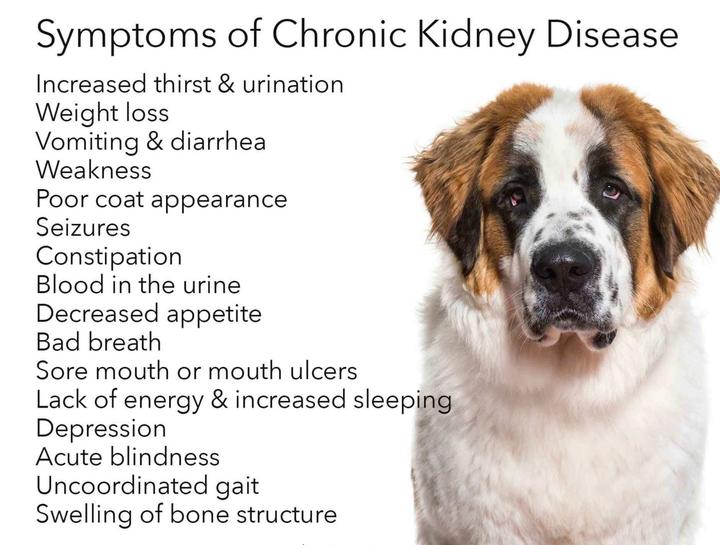Chonic Kidney Disease in Cats and Dogs

Chronic Kidney Disease in Cats and Dogs
texvetpets.org/article/chronic-kidney-disease-cats-dogs/
What is Chronic Kidney Disease (CKD)?
CKD is a long-term (chronic) condition that, once present, will continue for the remainder of a pet’s life. Both dogs and cats of any age, breed or sex can develop CKD. This disease will degenerate, decline or deteriorate the kidneys by affecting how well they can filter waste and water from the blood and transform it into urine. If all the waste in the body is not filtered correctly, it will build up and cause damage within the body, especially the muscles. Additionally, CKD will affect the ability of the kidneys to maintain appropriate electrolytes, the ionized or ionizable constituents of a living cell, blood, or other organic matter (sodium, potassium and phosphorus) balances.
What Causes CKD?
CKD can be caused by any event that decreases or stops the filtering ability of nephronsEach of the functional units in the kidney, consisting of a glomerulus and its associated tubule, through which the glomerular filtrate passes before emerging as urine, which, along with small blood vessels, make up the filtering system of the kidneys. It is estimated that each kidney has about a million nephrons. Toxins, drugs, trauma or idiopathic (unknown) causes are a few of the most common causes of CKD.
What are the Signs of CKD in Pets?
Signs of CKD are the same in both dogs and cats. The most common sign of CKD is voiding large amounts of urine and drinking excessively. The veterinary terms for these signs are polyuria and polydipsia, respectively. Other common signs can include weight loss, vomiting, muscle wasting, lack of appetite and lethargyA lack of energy and enthusiasm. In advanced CKD, electrolyte imbalances will be present. Signs of electrolyte imbalances can include abnormal gait, manner of walking, abnormal behavior, coma, weakness or seizures.
How Does a Veterinarian Diagnose and Treat CKD?
A veterinarian will typically diagnose CKD based on results from tests done on a pet’s blood and urine and any signs he/she observes or that are reported by the pet owner. Commonly, a complete blood count, chemistry panel and urinalysis/analysis of urine would be the first tests performed. Additionally, a veterinarian may choose to do radiographs (X-ray) or an ultrasound of a pet’s abdomen. These tests will help him/her determine the cause and severity of the defects of the kidneys caused by CKD. Incorporating bloodwork into your pet’s annual visit provides a baseline to monitor for changes.
Treatment of CKD will depend on the stage or level of the disease. A veterinarian will determine the stage of CKD your pet is in at the time of diagnosis. Treatment choices for a pet’s care can include medications, food changes and fluids under the skin, depending on a pet’s specific needs. Frequent exams and laboratory tests of blood and urine will be done to ensure the proper treatments are being used to manage a pet’s CKD. A veterinarian will determine treatments and frequency of testing during scheduled appointments.
Can CKD be Avoided?
If the CKD is determined to be idiopathic (having no known cause), there are no preventative measures to be taken. Many plants, flowers and foods are toxic to dogs and cats and can cause kidney problems. Keeping your pet away from potentially harmful items can help prevent an incident. Please consult ASPCA Pet Poison Control for poisonous plants and household products or for a consult if you are concerned your pet ingested something toxic. Incorporate wellness bloodwork into your pet’s annual exam so that signs can be detected in its early stages, when CKD is much easier to manage.
What could happen if CKD went untreated?
If CKD is left untreated, it will cause a build-up of toxins within the body, damaging muscles and internal organs. It will cause dehydration and electrolyte imbalances, ultimately causing death in a dog or cat.
If you believe your pet has CKD, make an appointment with your veterinarian.
Paula Plummer, LVT, VTS (ECC, SAIM), is a licensed veterinary technician who graduated from Murray State College in Tishomingo, Oklahoma. Ms. Plummer works in the Feline Internal Medicine Department at the Texas A&M University Veterinary Teaching Hospital in College Station, Texas.
